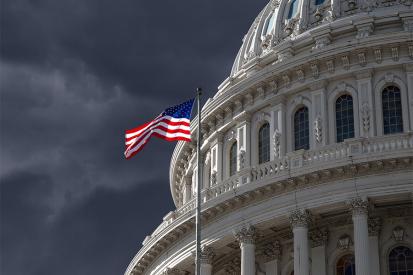Here’s How the Equality Act Threatens Your Freedom


On June 21, 2023, the Equality Act was introduced in Congress.
The bill should be concerning to anyone who values religious freedom and true equality.
It is a deliberate attempt to force every American to promote messages and celebrate events that conflict with their sincere beliefs. The Equality Act would also jeopardize the equal treatment of women, threaten the right of parents to raise their children consistent with their beliefs, and upend the bedrock understanding of male and female in our law and culture.
To understand how, let’s take a more in-depth look at this legislation and its ramifications.
What is the Equality Act?
The essence of the Equality Act is its addition of “sexual orientation” and “gender identity” as protected classes to existing federal nondiscrimination laws governing employment, housing, places of public accommodation, and recipients of federal financial assistance. These additions would prohibit employers, preschools, and even religious schools and organizations from making choices based on basic biology, bodily privacy, and their beliefs about the nature of marriage. It would apply to every single recipient of federal financial assistance (including every public school and almost all colleges and universities).
And though “nondiscrimination” sounds good in the abstract, that is not what this bill is truly about. In reality, the Equality Act poses an unprecedented threat to free speech, religious freedom, parental rights, and the progress that women have made toward true equal treatment in law and culture.
How would the Equality Act threaten religious freedom and free speech?
ADF has seen the effect that laws similar to the Equality Act have had across the country. And we stand ready to defend religious freedom and free speech.
- The Equality Act could be used to forbid churches and religious nonprofits from requiring their employees to live out their religious beliefs about marriage, sexual morality, and the distinction between the sexes. ADF is representing a Washington homeless ministry whose Gospel work, religious message, and very existence is being threatened by a state law similar to the Equality Act.
- The Equality Act would threaten religious foster care and adoption agencies with closure if they operate according to their deeply held belief that the best place for a child is a home with a married mother and father. In New York, for example, the state used a public-accommodation “antidiscrimination” law—similar to the Equality Act—to target a Christian adoption ministry called New Hope Family Services, which has been placing children in loving homes for over 50 years. Thankfully, confronted with strong 2nd Circuit precedent, New York state officials agreed to settle the lawsuit, ensuring that the state can no longer target New Hope and that the ministry can continue serving the community. The Equality Act would dramatically expand the definition of “public accommodation,” which could include private religious schools and even churches, forbidding them to rely on their religious beliefs about sexual morality when selecting their workforces.
- The Equality Act would threaten the First Amendment rights of artists who serve everyone, including those who identify as LGBT, and want to speak and express only those messages consistent with their beliefs. Colorado officials are misusing a similar law to censor ADF client and graphic artist Lorie Smith’s speech and force her to create custom websites celebrating same-sex weddings. Lorie challenged this unjust law, and her case has reached the U.S. Supreme Court.
- The Equality Act would also force individuals to express messages that violate their beliefs under the threat of punishment. Nicholas Meriwether, a professor at Shawnee State University, was disciplined by the school for declining to refer to a male student as a woman. He offered to refer to the student by first or last name only, in order to respect both the student and his own beliefs, but this did not satisfy the university, which still punished him. ADF filed a lawsuit on behalf of Dr. Meriwether, and in April 2022, the university affirmed his right to address students consistent with his beliefs.
How would the Equality Act threaten women?
-
The Equality Act would force women to share private spaces with men.
This is a threat to women who need critical services, such as those provided by Downtown Hope Center in Anchorage, Alaska. ADF successfully defended Downtown Hope Center—twice—after the city government tried to force the shelter to allow biological men who identify as female to sleep mere feet from women, many of whom have suffered rape, sex trafficking, and domestic violence. For these women, having a biological man in the room where they sleep or undress triggers severe anxiety and trauma—so much so that one woman said she would have to leave the shelter and sleep in the woods in the Alaskan winter, because she could not sleep in the same room as a biological male. - The Equality Act would allow men to take away athletic opportunities from women.
Title IX was created to ensure equal opportunities for women in education—including in athletics, where the number of female athletes has grown rapidly since its passage. But the Equality Act could destroy that progress by allowing male athletes who identify as female to compete in women’s sports.
ADF represents four young women from Connecticut, where a state high school athletic policy does just that. These four women ran track in high school, and they lost races, state championships, and opportunities to compete at the highest level because of the state’s policy. Our laws should recognize biological differences between the sexes; by ignoring those differences, the Equality Act could make Connecticut’s disastrous policy a nationwide reality.
How would the Equality Act threaten parental rights?
Destructive gender ideology, which would be enshrined in law by the Equality Act, threatens the right of parents to raise and care for their children. We’ve seen increasing numbers of public schools across the nation socially “transitioning” students at school without telling parents, maintaining “secret files” about gender-confused students, and forcing school employees to address students in ways that are inconsistent with their sex. Practices like these clearly harm children and violate the fundamental rights of parents—but these practices would be encouraged if the Equality Act became law.
What about the Religious Freedom Restoration Act (RFRA)—doesn’t that provide some protection for these groups?
If you’re not already concerned about the scope and reach of the Equality Act, here’s another issue.
In the past, similar proposals have claimed to respect the concerns of people of faith, offering a few narrow protections for religious freedom. But the Equality Act offers no such protections. Even worse, the bill would take away existing protections, forbidding religious individuals and organizations from invoking the Religious Freedom Restoration Act to shield themselves from claims brought under the Equality Act. That would make it harder for the faithful to defend themselves when attacked for living out their beliefs.
Does that sound like equal treatment to you?
Essentially, the Equality Act gives people of faith an ultimatum: change your faith-based practices or face government punishment.
The bottom line
Laws must respect freedom and promote justice for every citizen, no matter who they are. But that is not what the Equality Act does. Instead, it threatens everyone’s fundamental liberties. And that is something no American should stand for.

